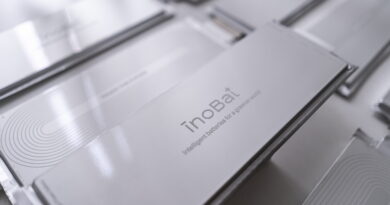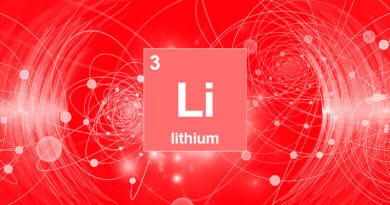Pilbara Minerals to value-add lithium salts at Pilgangoora Project
Australian lithium producer, Pilbara Minerals has announcde that it made strong progress with its growth and diversification strategy to become a sustainable, low-cost lithium producer and fully integrated lithium raw materials and chemicals supplier.
Following successful initial testwork, Pilbara Minerals has signed an MOU with Sydney-based technology company Calix Limited to jointly undertake a Scoping Study to evaluate a new refining process, incorporating Calix’s unique calcination technology to produce a concentrated lithium salt from the Pilgangoora Project for downstream lithium raw material demand.
Under the MOU, Pilbara Minerals and Calix have agreed to complete a Scoping Study to jointly develop a Demonstration Plant at Pilgangoora, with a view to negotiating and entering a joint venture to build and operate the Demonstration Plant and further commercialise the technology developed.
The proposed Demonstration Plant will likely utilise fine particle, lower-grade spodumene concentrate from the Pilgangoora Project and further process it on site (with electricity generation using renewable energy) with the aim of creating a low-carbon, concentrated lithium salt which could be further refined into lithium battery materials or potentially used as a direct feedstock for Lithium Iron Phosphate (LFP) cathode manufacture.
Calix’s unique calcination process is particularly well suited to fine spodumene concentrate feed which provides excellent temperature control, allowing lower grade concentrates to bemore successfully treated than traditional calcination methods.
Pilot scale test work at Calix’s Bacchus Marsh facility to date has demonstrated that the Calix technology was able to achieve >95% conversion of the spodumene ore to an extractable lithium.
Notably, as this process is electrically powered, the Calix BATMn reactor enables the use of renewable energy sources, with the Pilbara region being one of the world’s great potential renewable energy regions with its extensive solar (and in certain locations wind) resources.
Pilbara Minerals’ Managing Director and CEO, Ken Brinsden, said the spodumene supply chain was ripe for innovation as the industry continues to move through a rapid growth phase and downstream industries look for a lower carbon footprint in end-products.
“At the mine, if we can efficiently calcine a lower-grade spodumene concentrate we should also be able to achieve a higher recovery from the ore body, meaning less mine wastage and lower cost. The opportunity to produce a higher-value product in Australia should also allow us to capture more of the overall value in the new-energy industry as it develops.
“By shipping a much higher-value lithium concentrate, most of the waste remains and is handled at the mine site, meaning that our customers are not stuck with the cost of shipping or storing this waste, and providing a material reduction in carbon emissions arising from freight.
“By using an electric calciner, the project should be able to connect to renewable power sources, materially lowering the carbon footprint of the hard-rock lithium raw materials supply chain. Carbon emissions reduction is increasingly important for Australian exports and heavy industry more broadly, both to enhance Environmental, Social and Governance (ESG) performance but also to maintain international competitiveness.
“With promising results from the initial testwork, we will now move to a Scoping Study phase to investigate installing a calciner and a midstream demonstration plant at the Pilgangoora Project to allow the processing of fine, low-grade spodumene concentrate to produce a lithium salt material for export overseas.” Phil Hodgson, Managing Director of Calix, said successful trials over the course of the past nine months have tested spodumene concentrates of different grades and particle sizes.
“This proof-of-concept work demonstrated that the Calix technology was able to achieve >95% conversion of the spodumene ore to an extractable lithium, which is comparable to the conventional rotary kiln process, but with fine and lower grade material. Additionally, we carried out these runs on our “BATMn” electric kiln, providing additional proof-of-concept for the technology to be run off renewable electricity, such as a solar and/or wind farm.
“We look forward to working with Pilbara Minerals on this exciting project for the hard-rock lithium industry, and also other mining and processing companies in other minerals to improve their industrial processes, reduce costs and increase their sustainability,” Hodgson said.
The ‘Mid-Stream Product’ Scoping Study will run until late 2021. If the results are positive, Pilbara Minerals and Calix may decide to negotiate and form a Joint Venture (JV) to build and own a small commercial scale Demonstration Plant at the Pilgangoora Project, starting initially with a Definitive Feasibility Study.
The contemplated facility is expected to be capable of producing up to several thousand tonnes of lithium salt annually, and the JV will also market and export the product from the facility, “on-shoring” significant value into Australia and potentially avoiding the international shipping of thousands of tonnes of waste material (>90% of current spodumene exports) overseas.
If Pilbara Minerals and Calix decide to proceed with the Demonstration Plant and it achieves successful operation, the MOU contemplates the JV will then also develop a world-wide commercialisation path for the technology in respect of converting fines spodumene concentrate to value-added chemicals.
Independent from the JV, and assuming the successful operation of the Demonstration Plant, Pilbara Minerals could look to building and independently operating its own commercial scale lithium phosphate operation at the Pilgangoora Project using technology licenced from the JV.
This would be a separate business operation from the Demonstration Plant and JV and would use spodumene concentrate sourced from the Pilgangoora Project.




